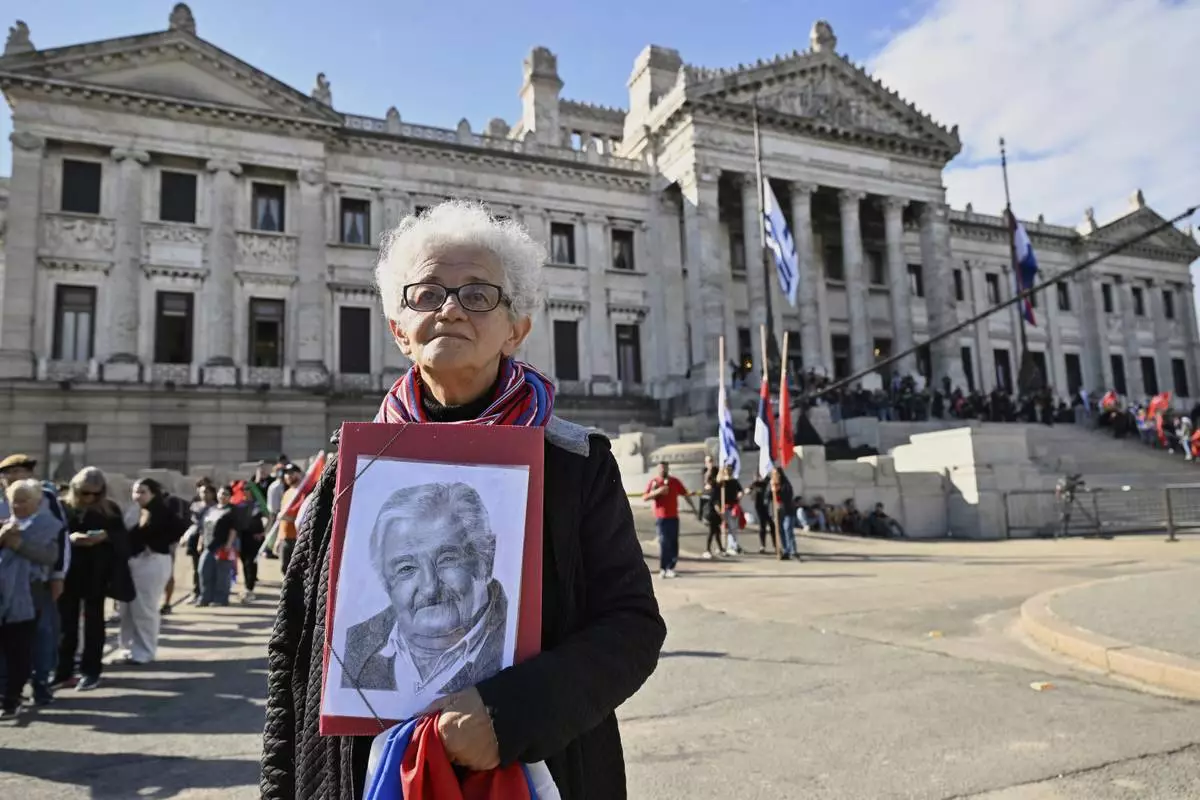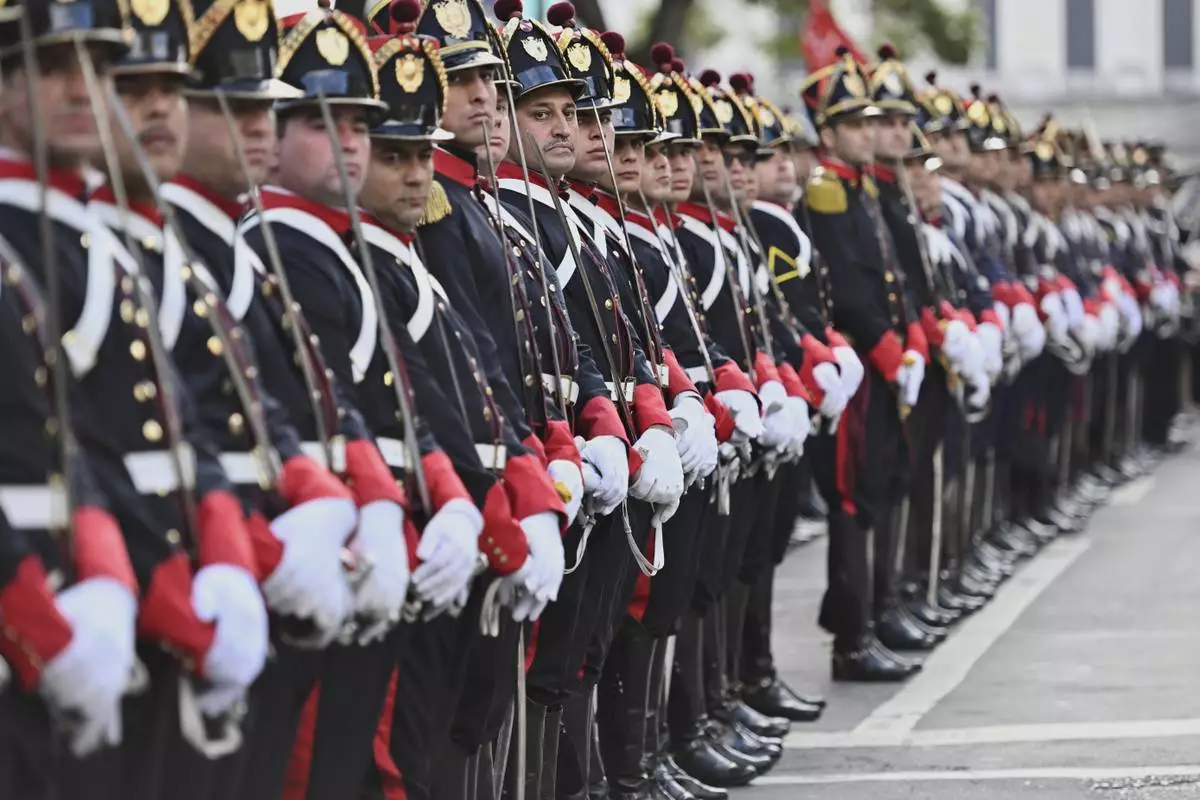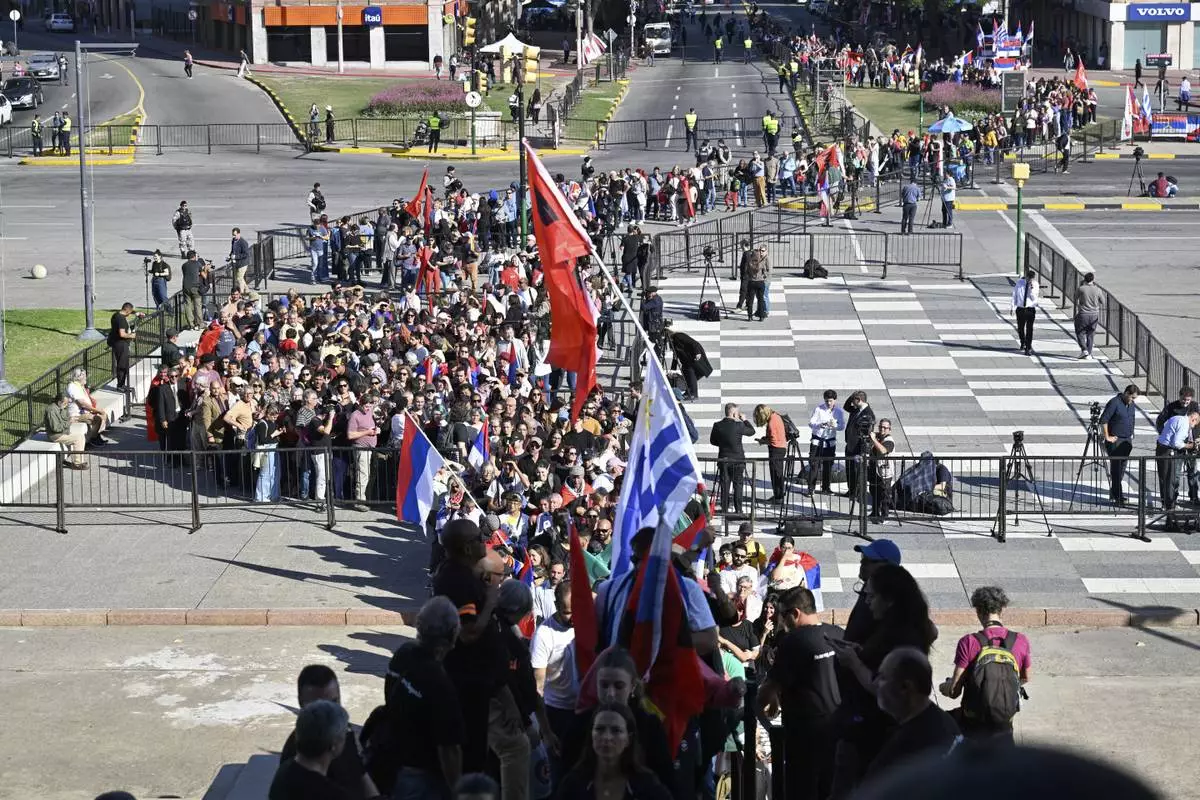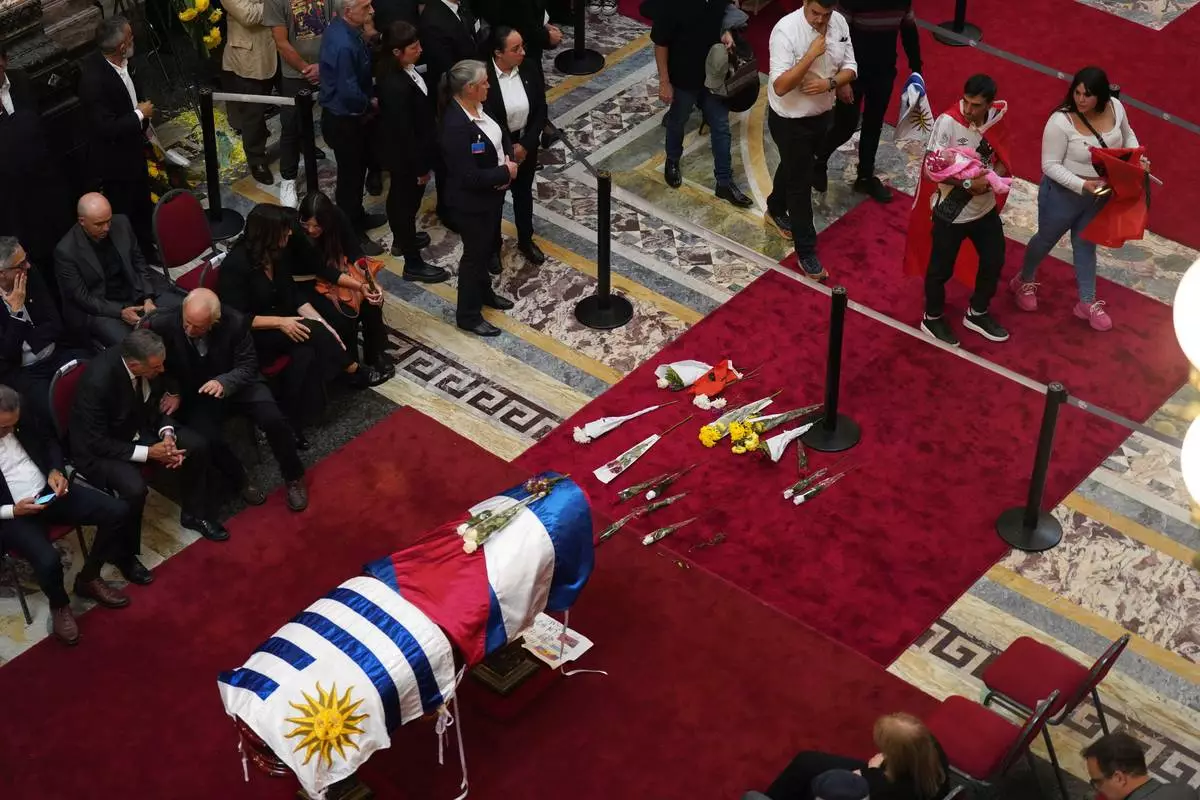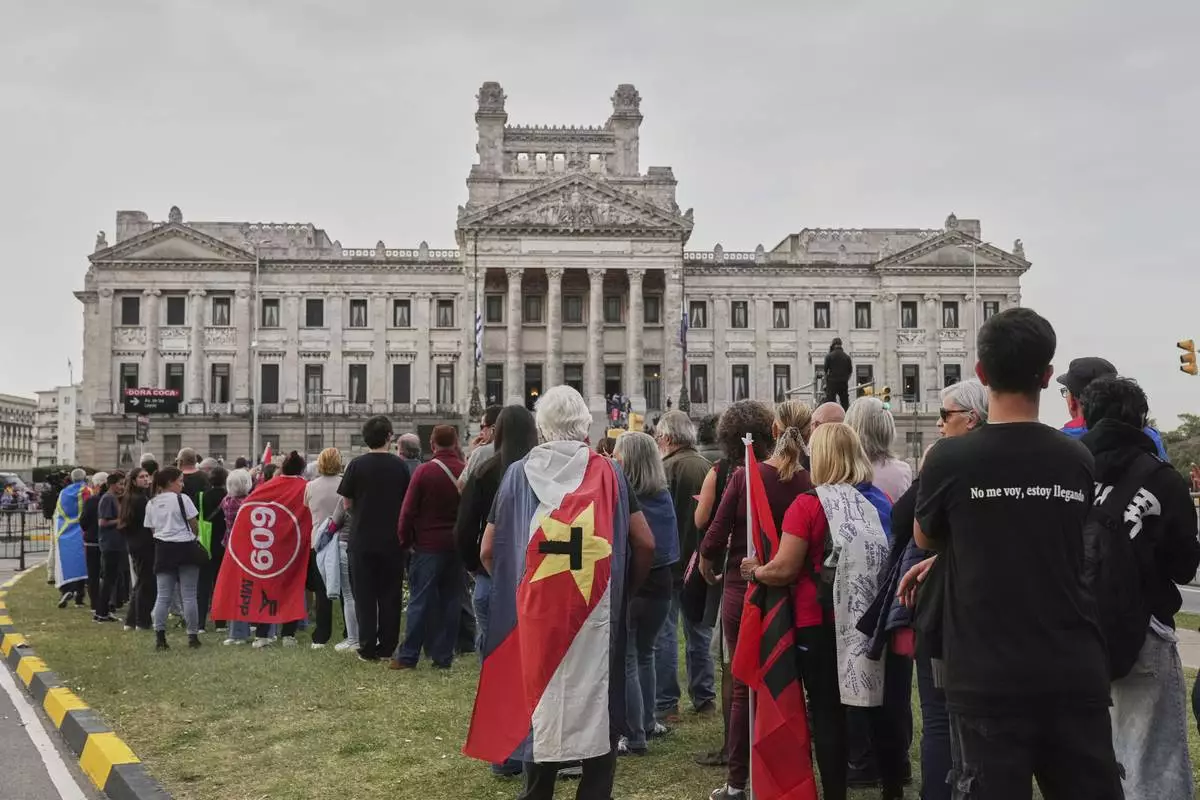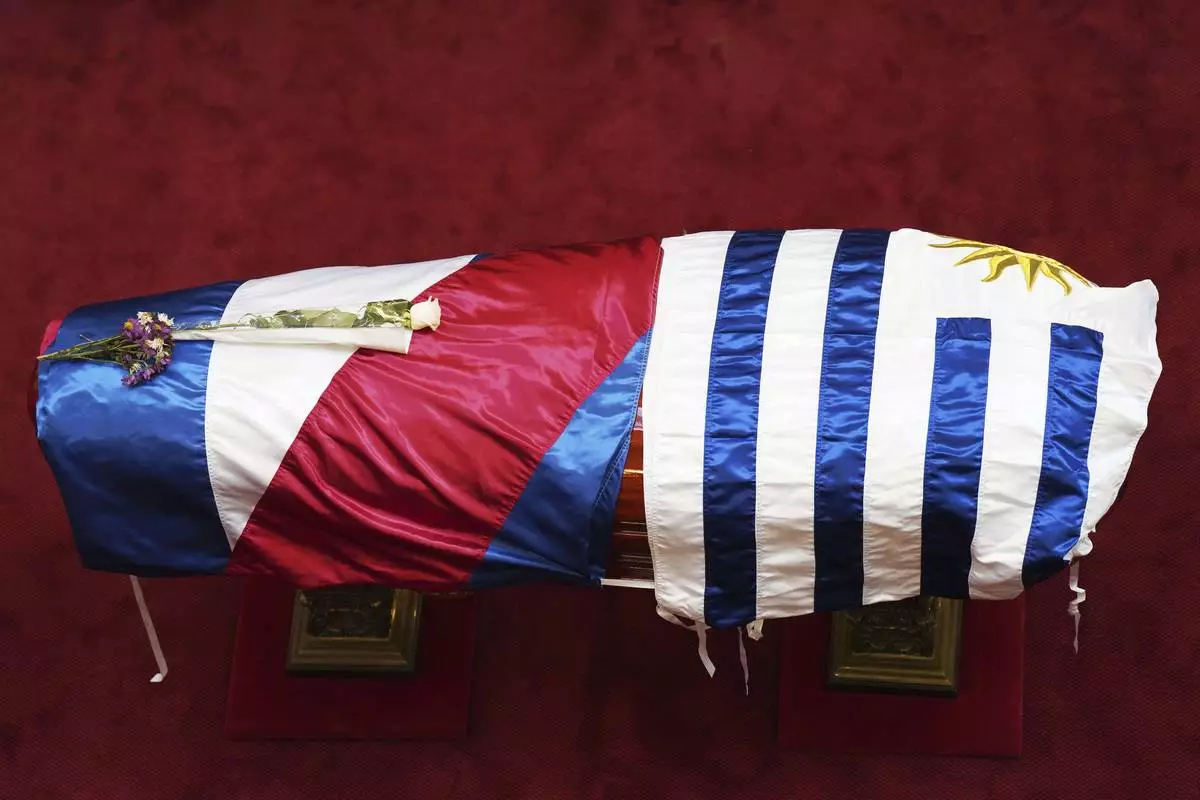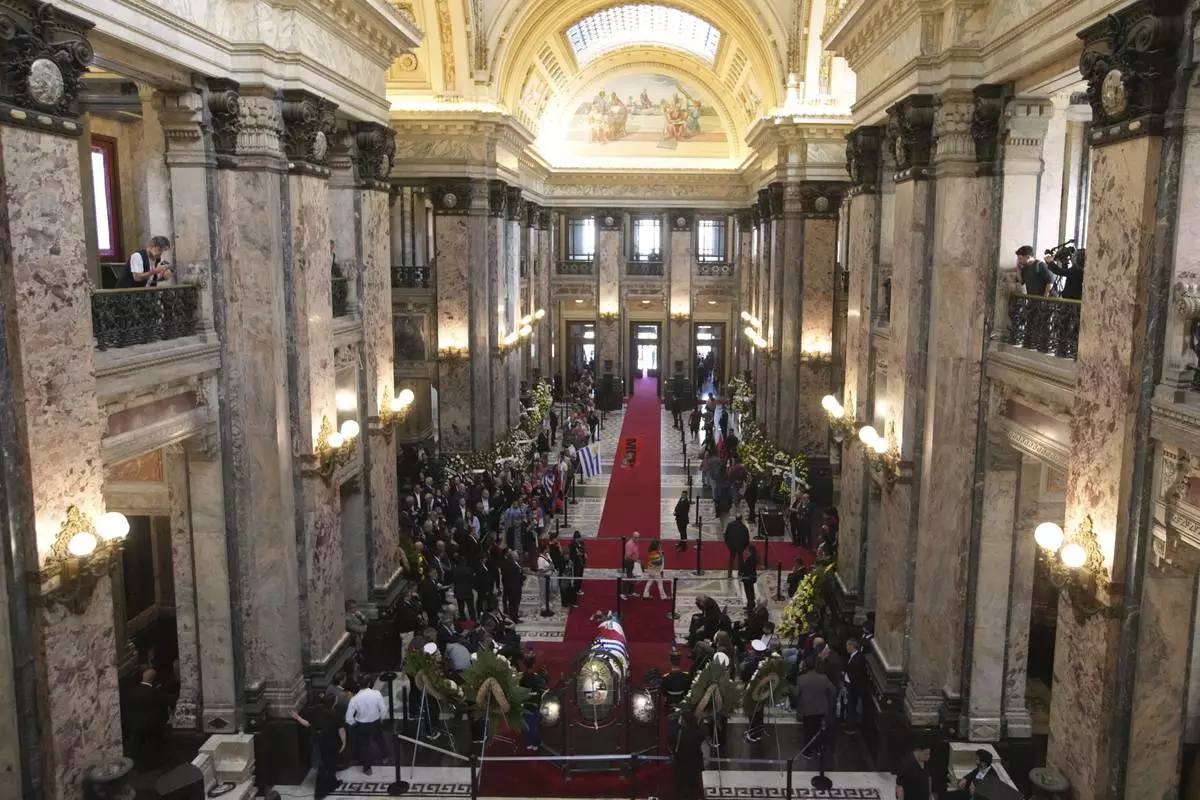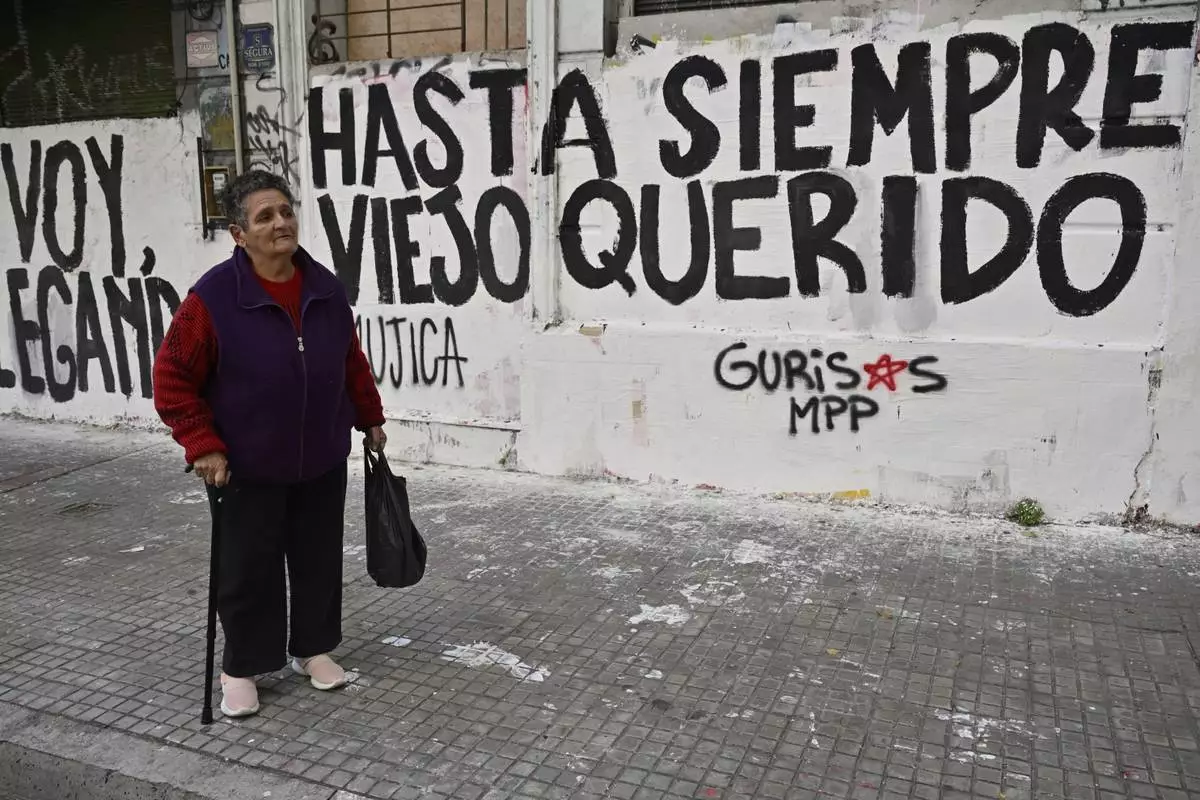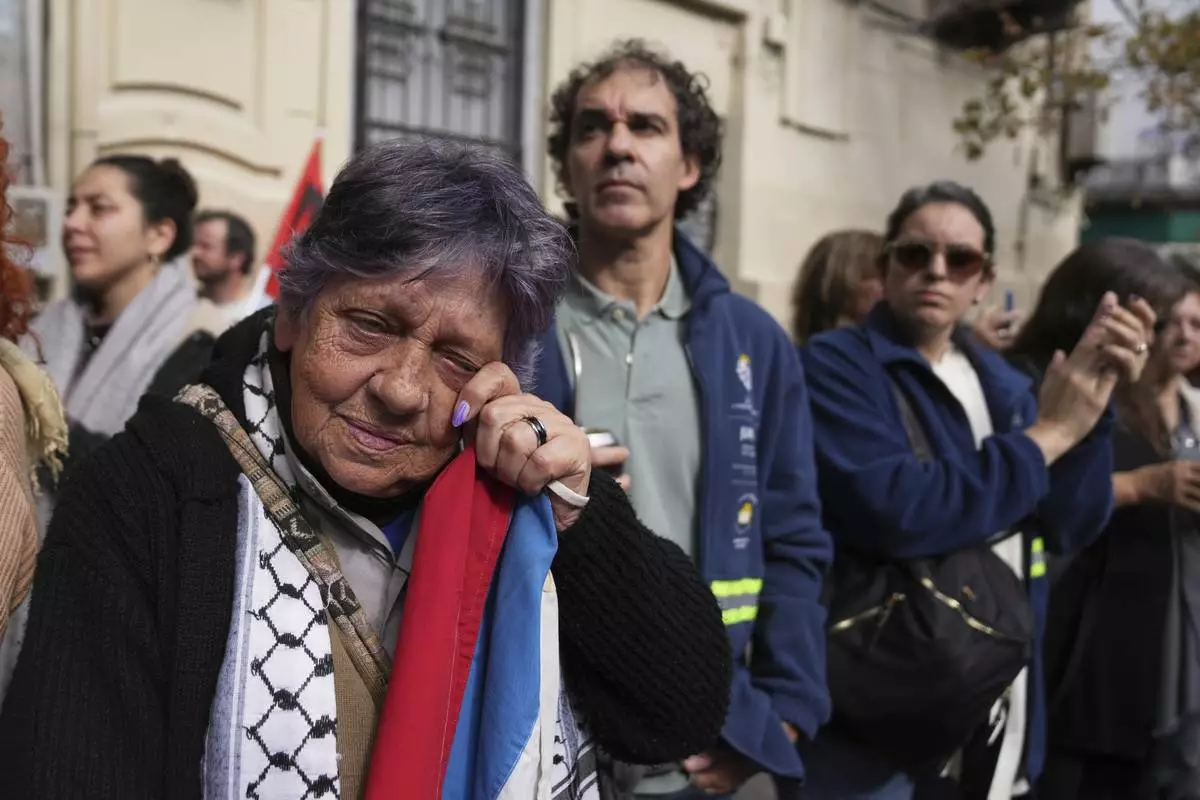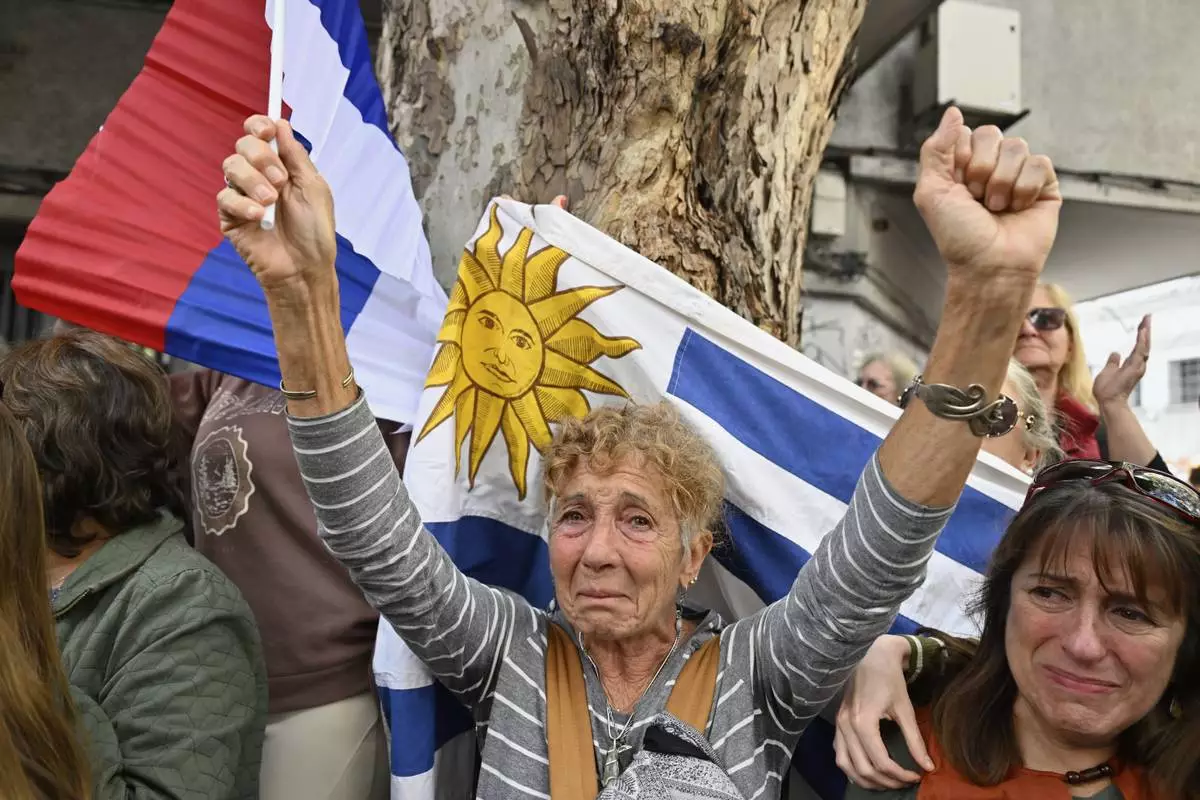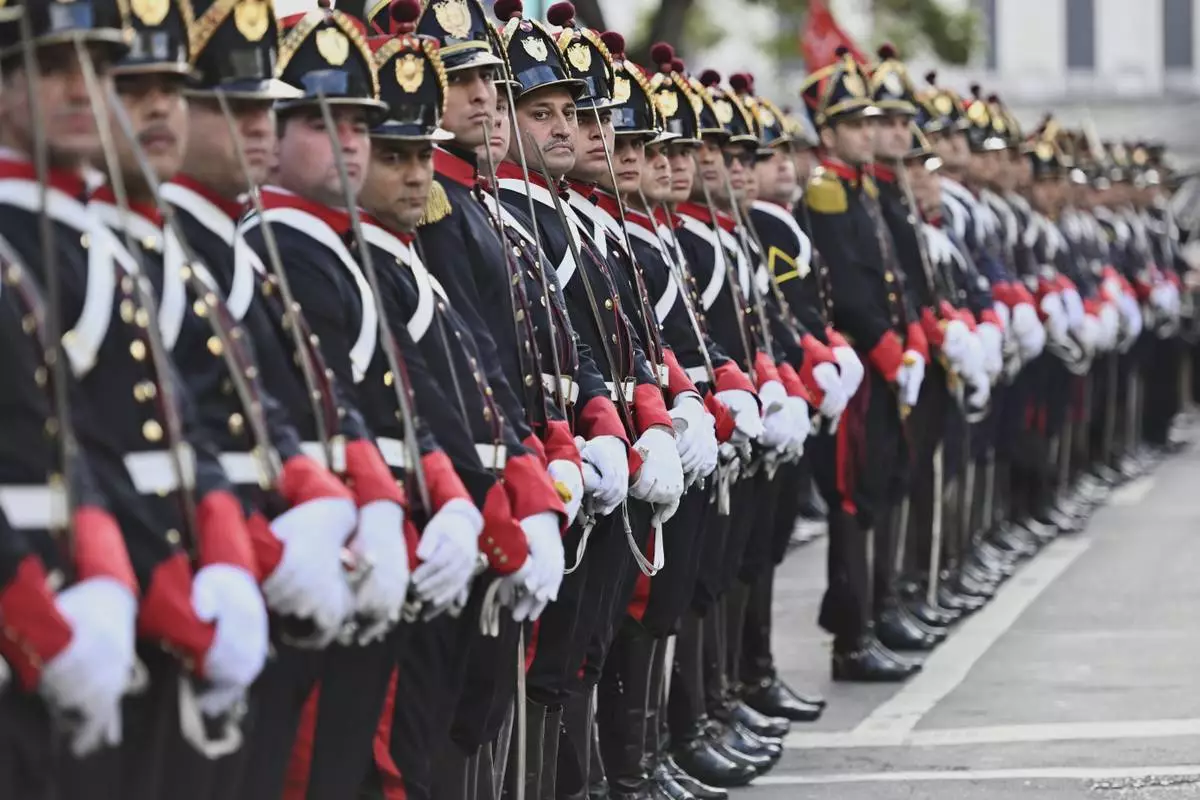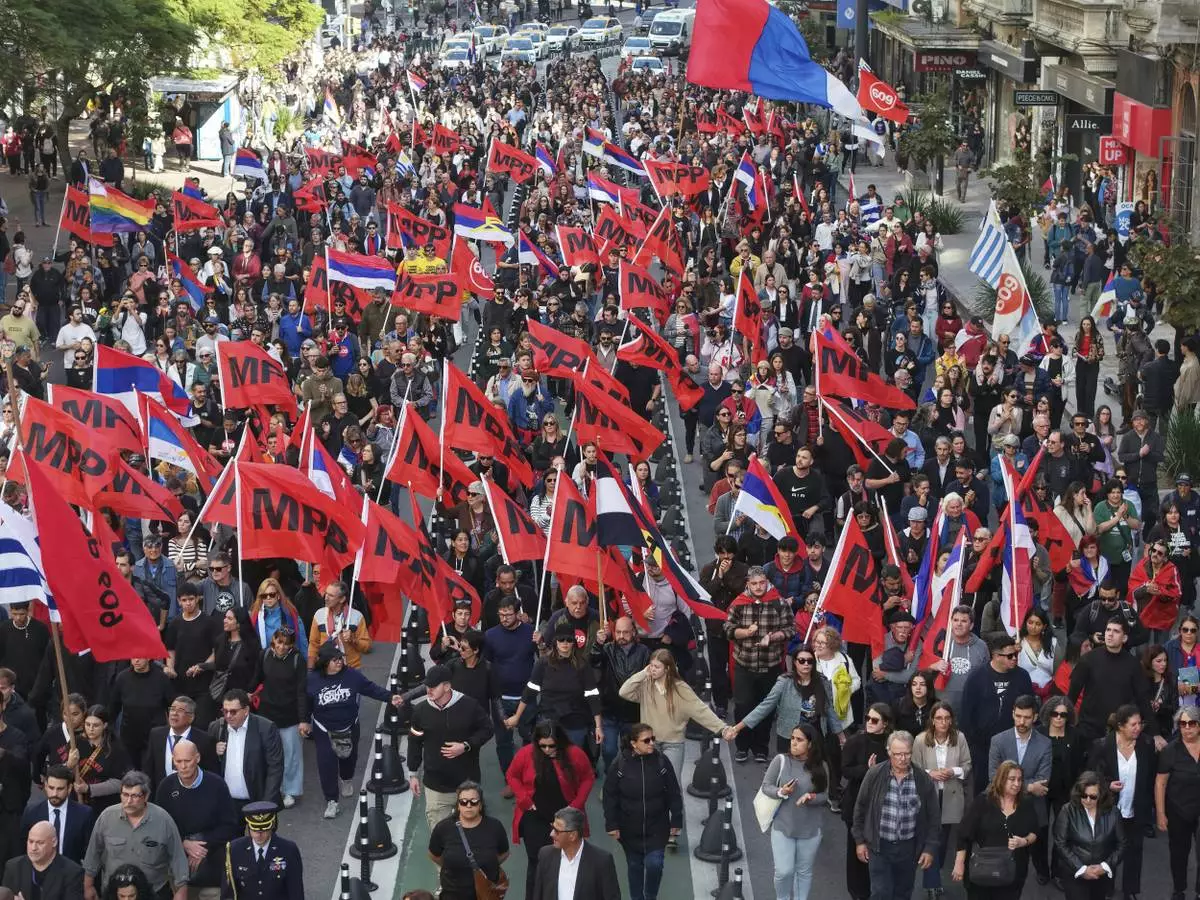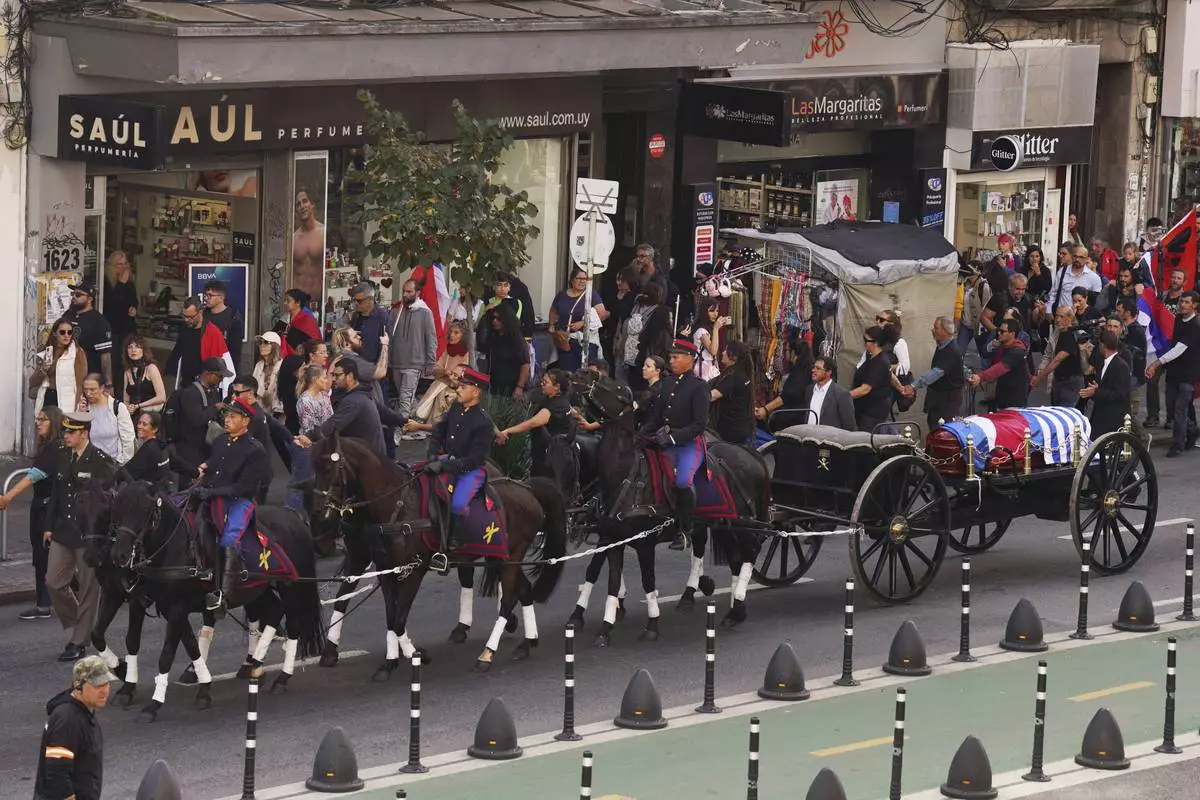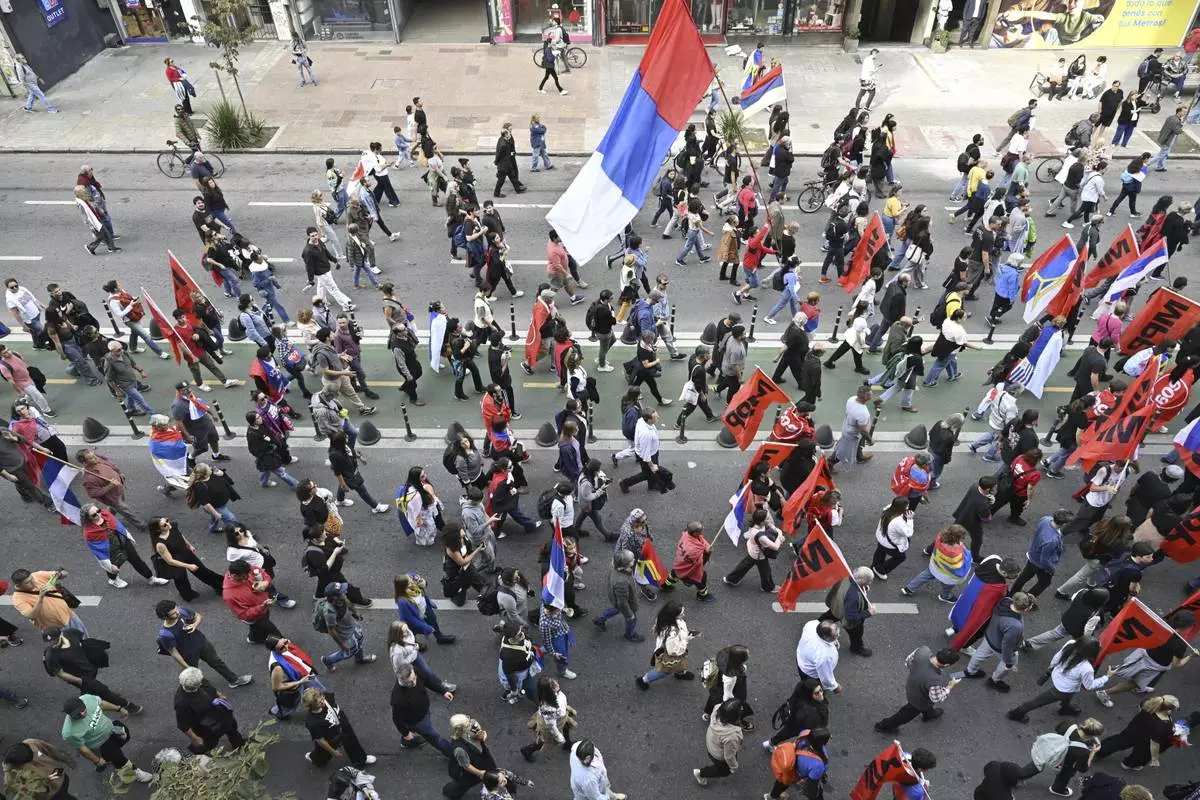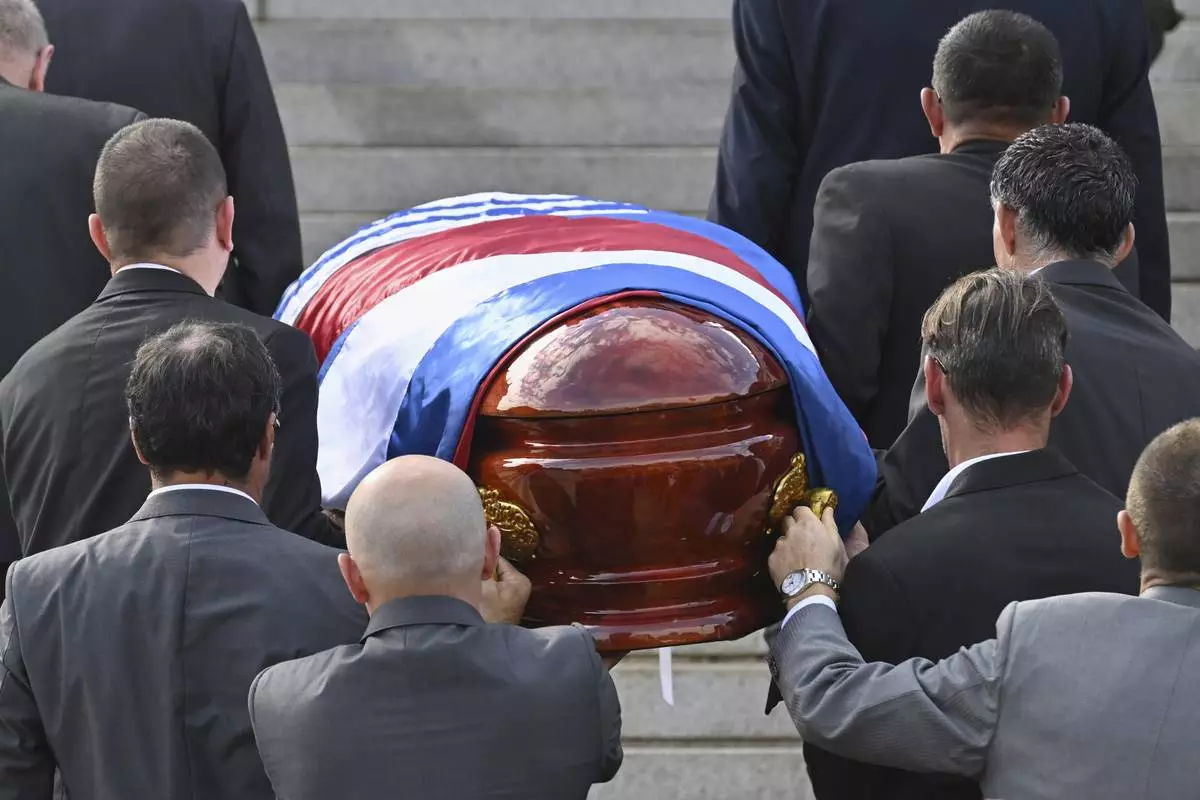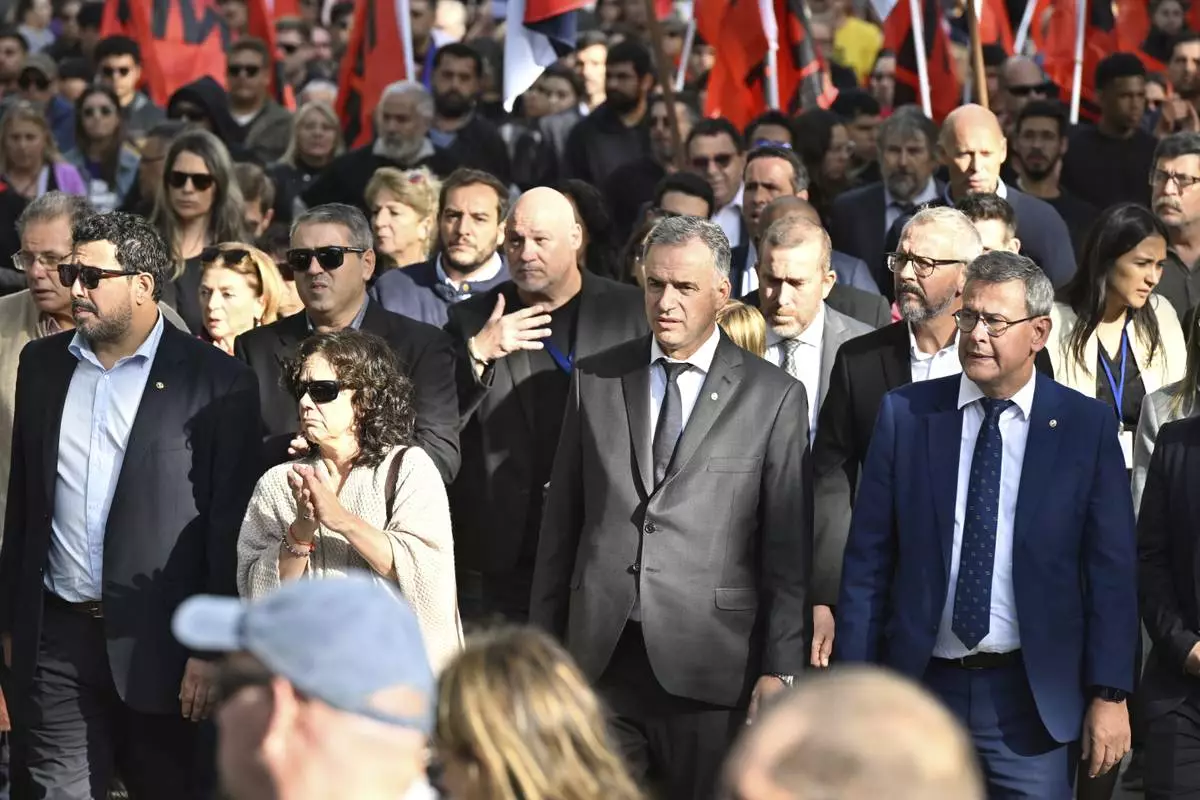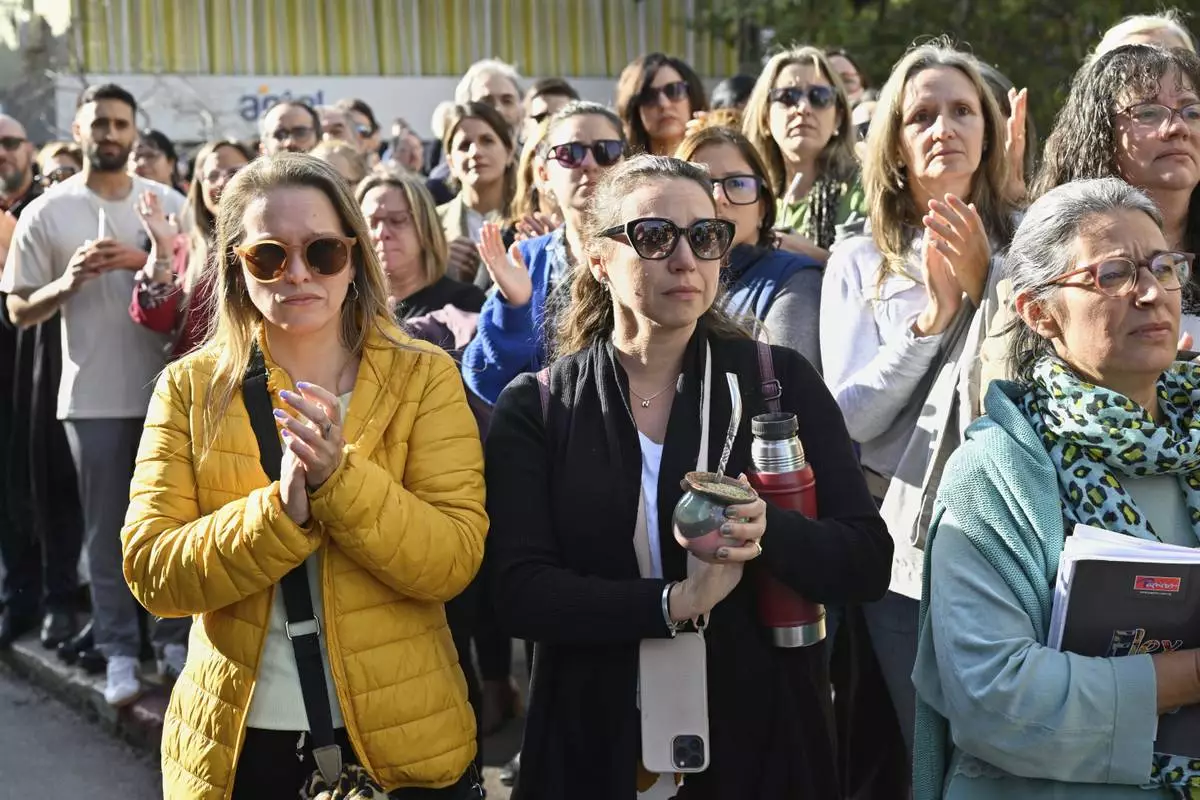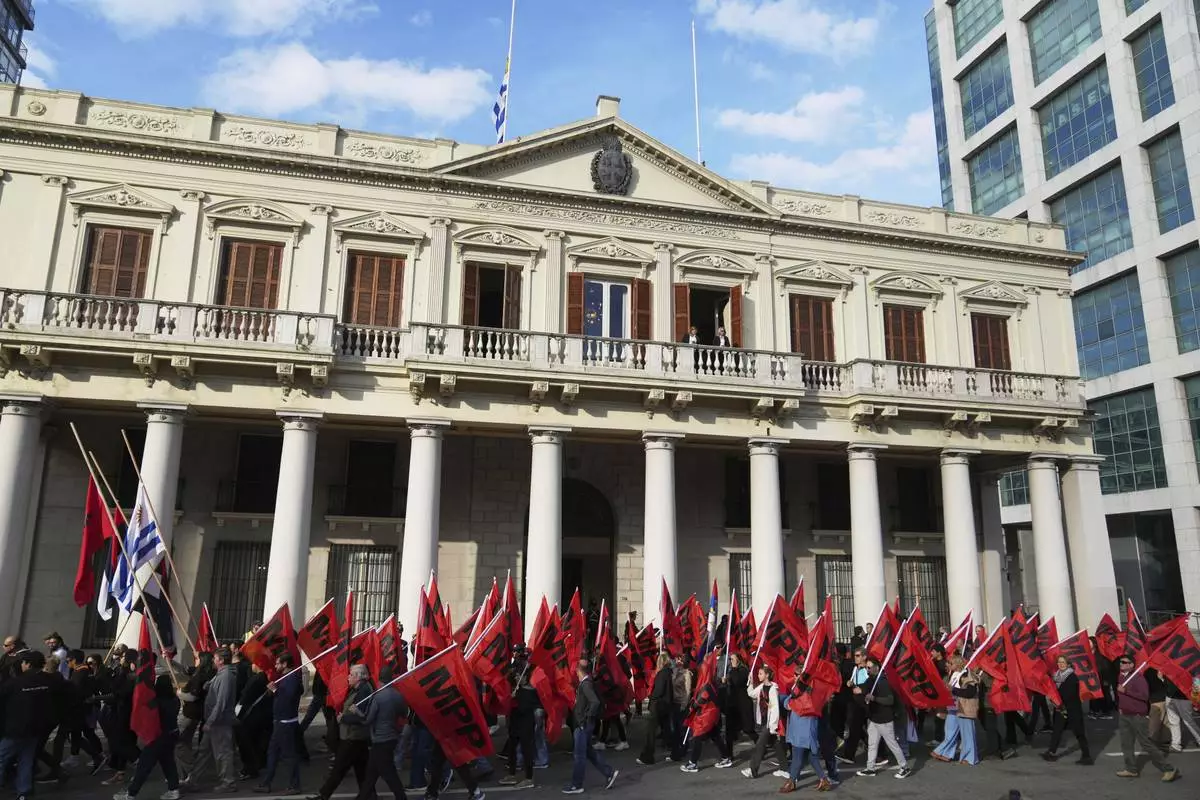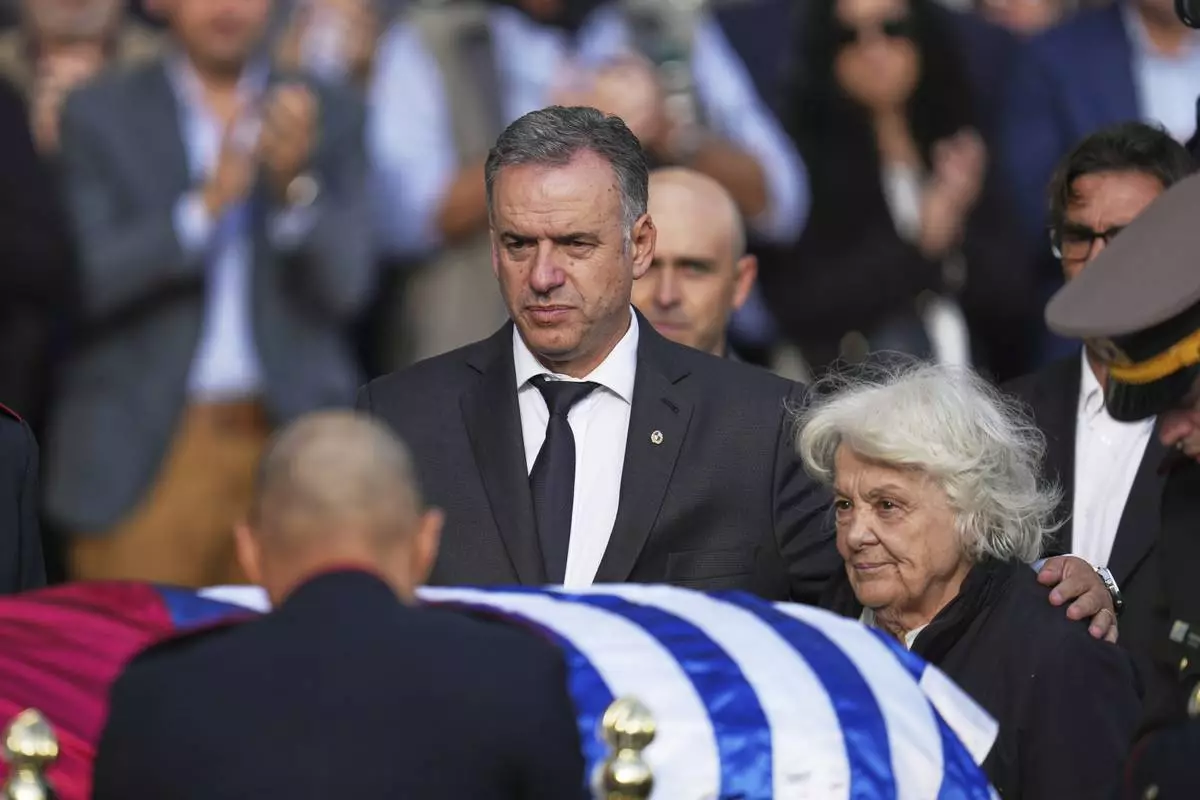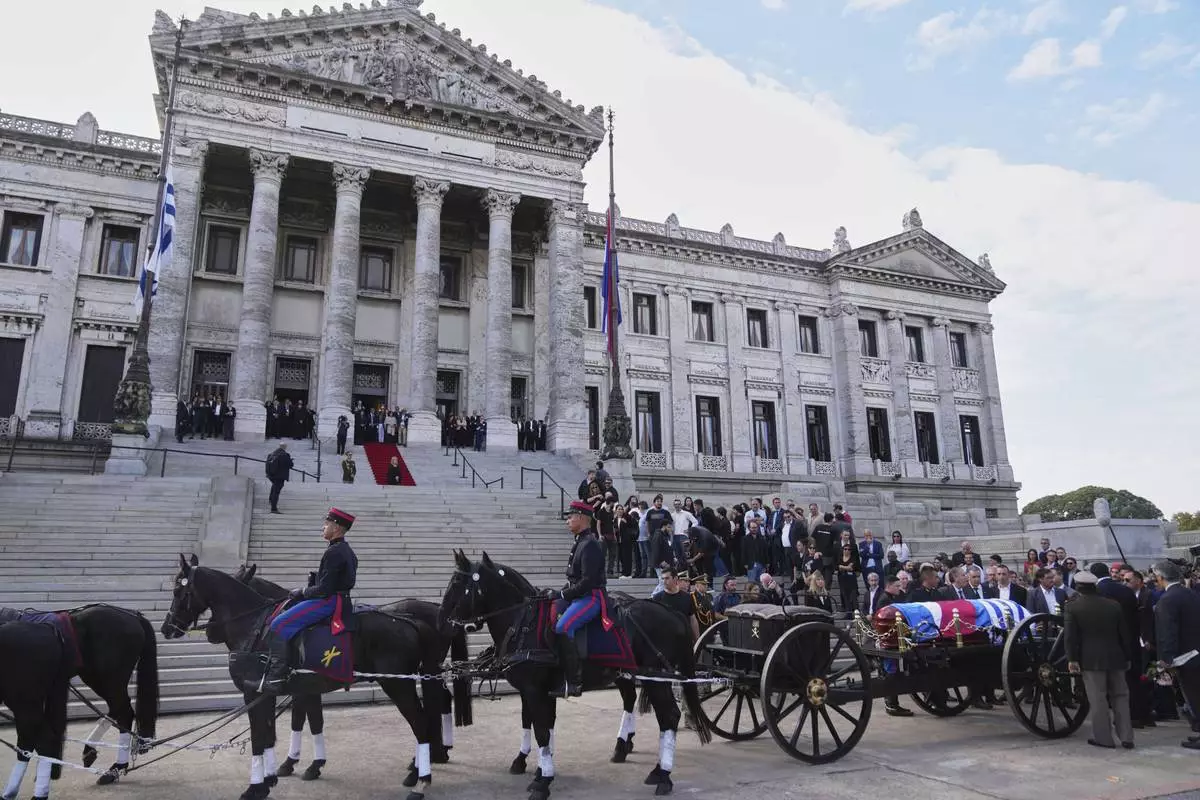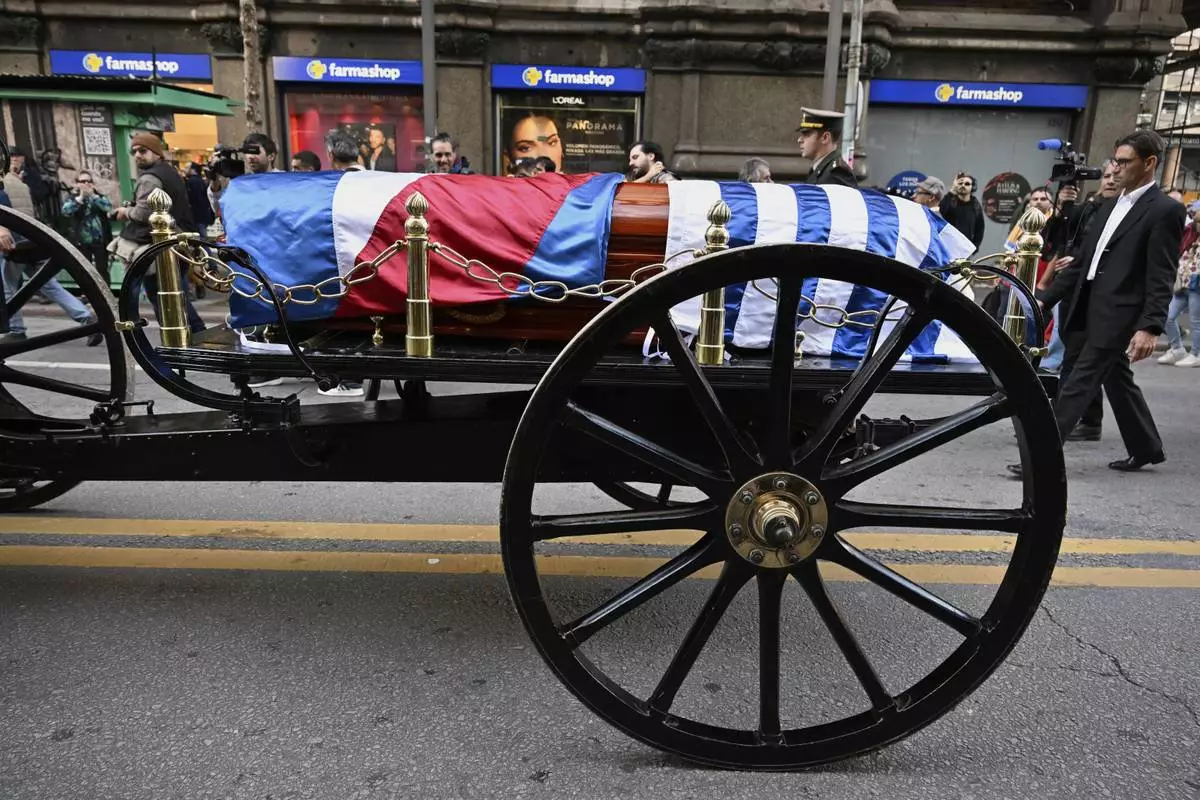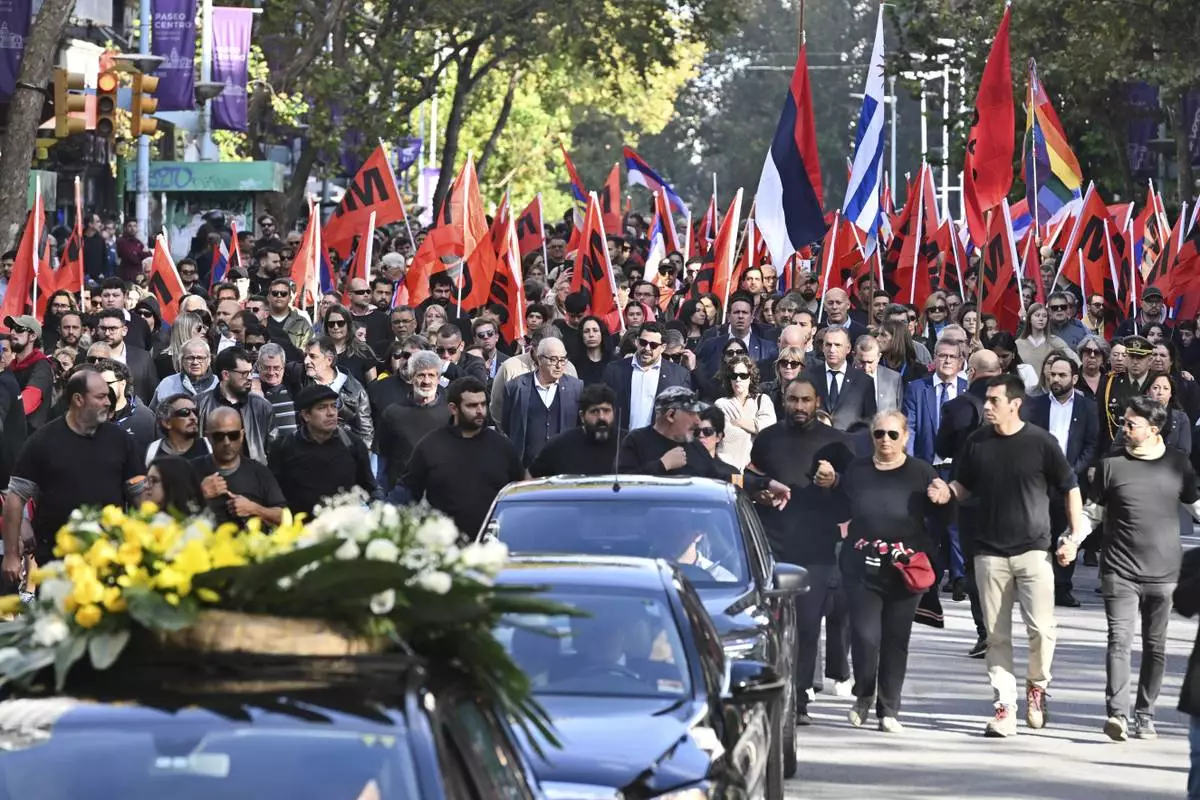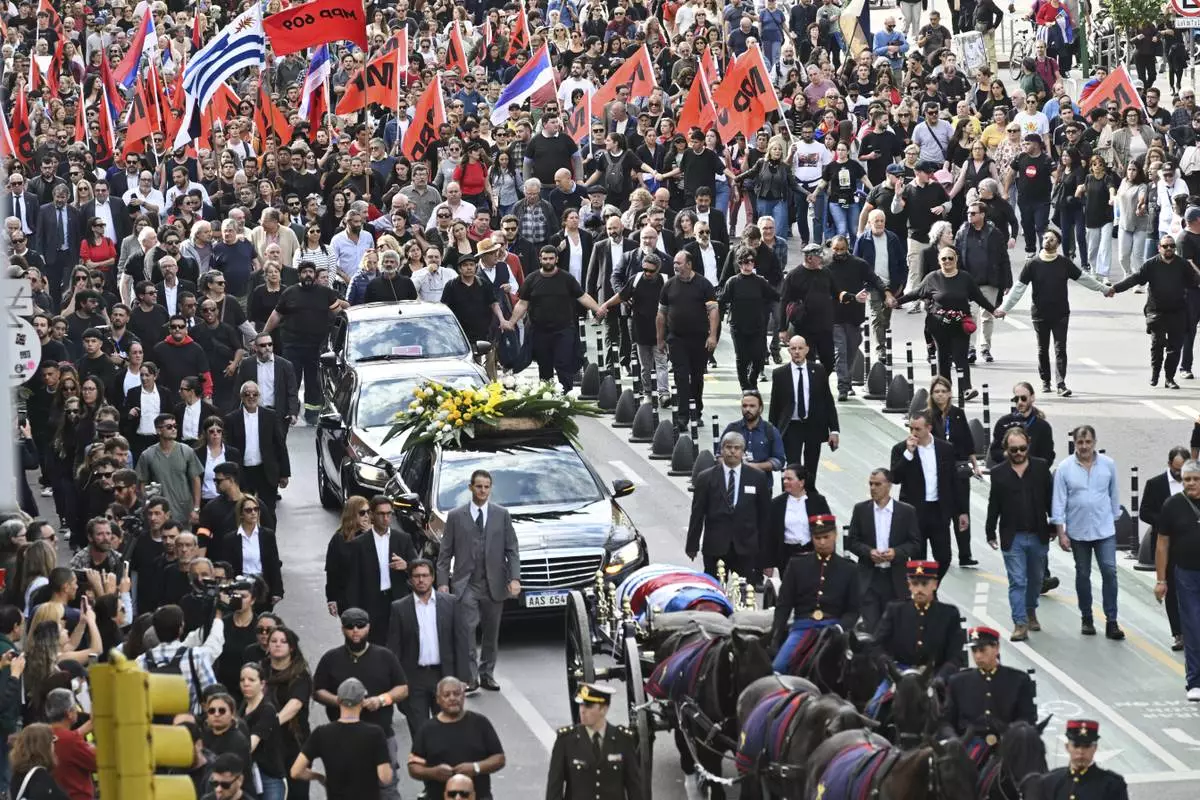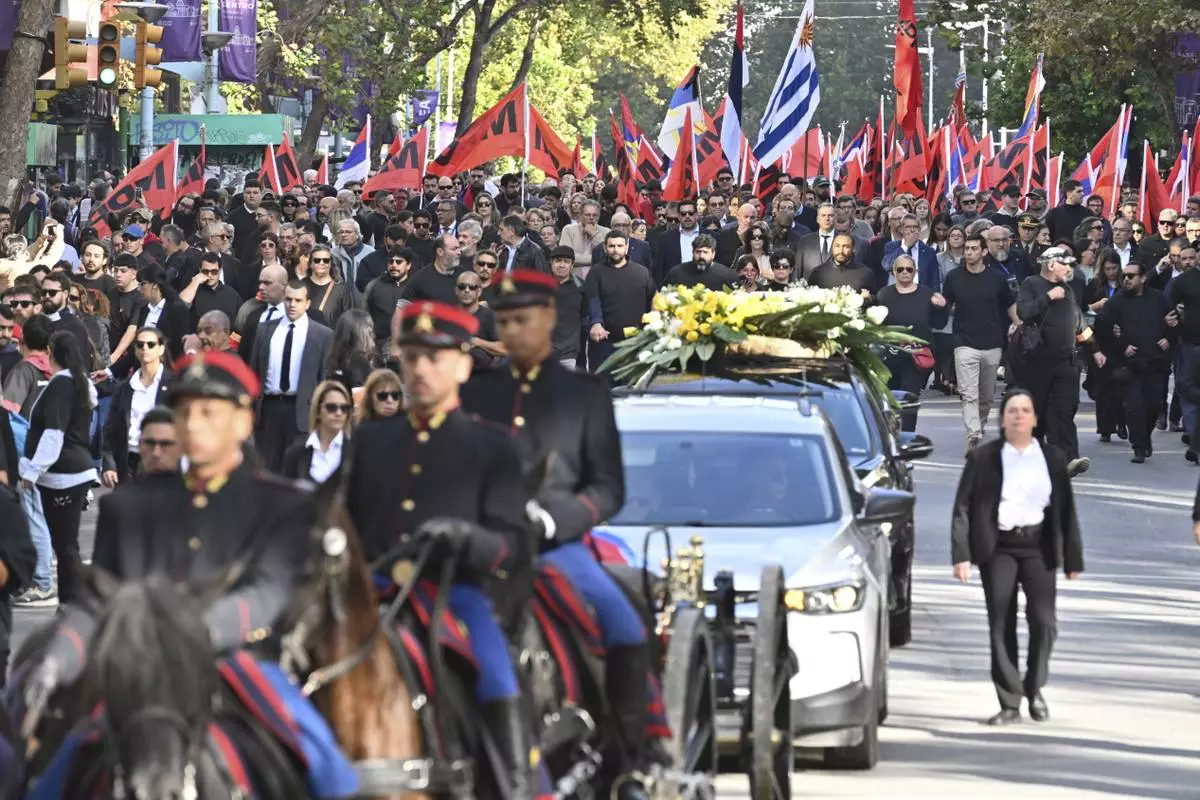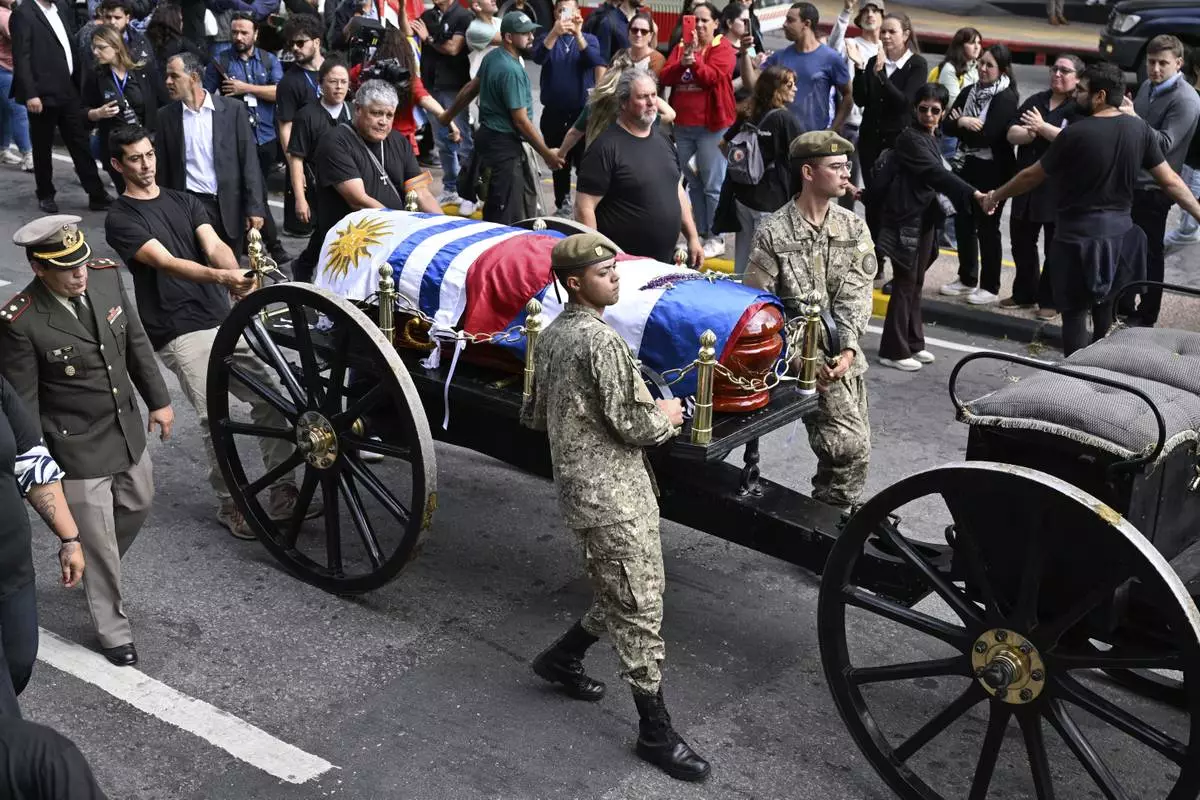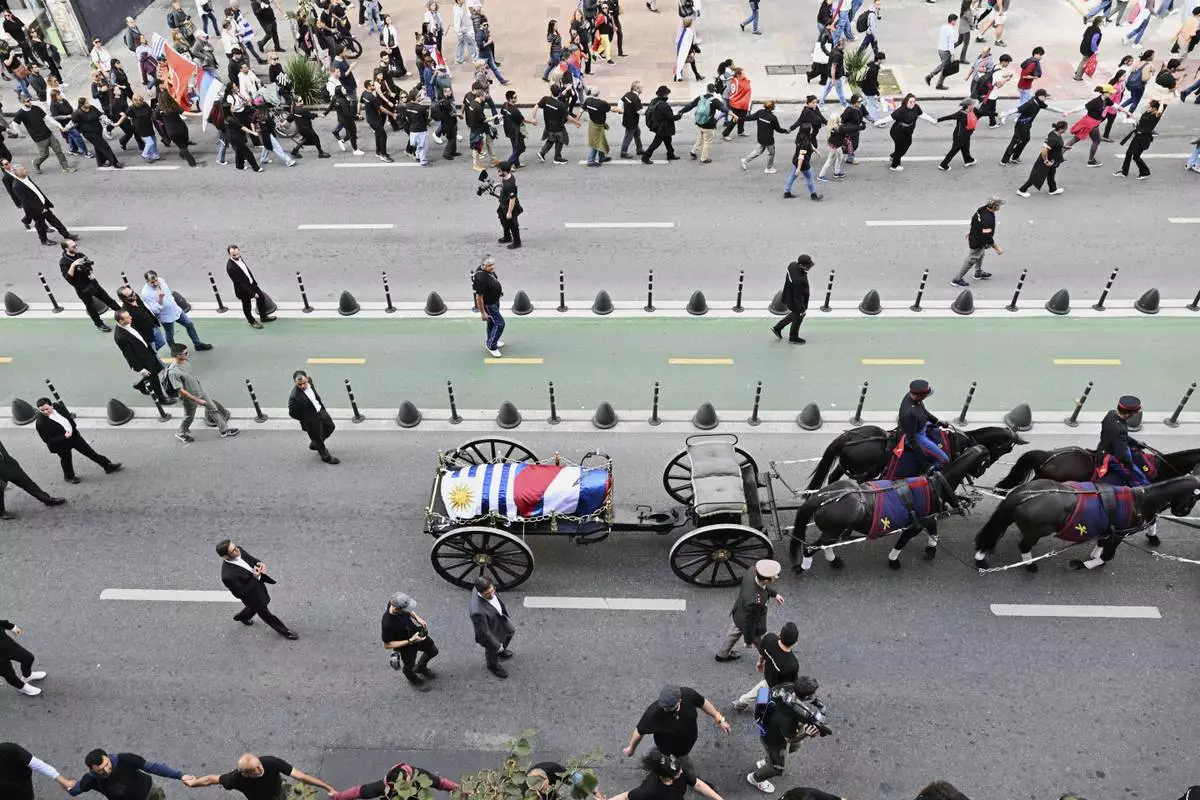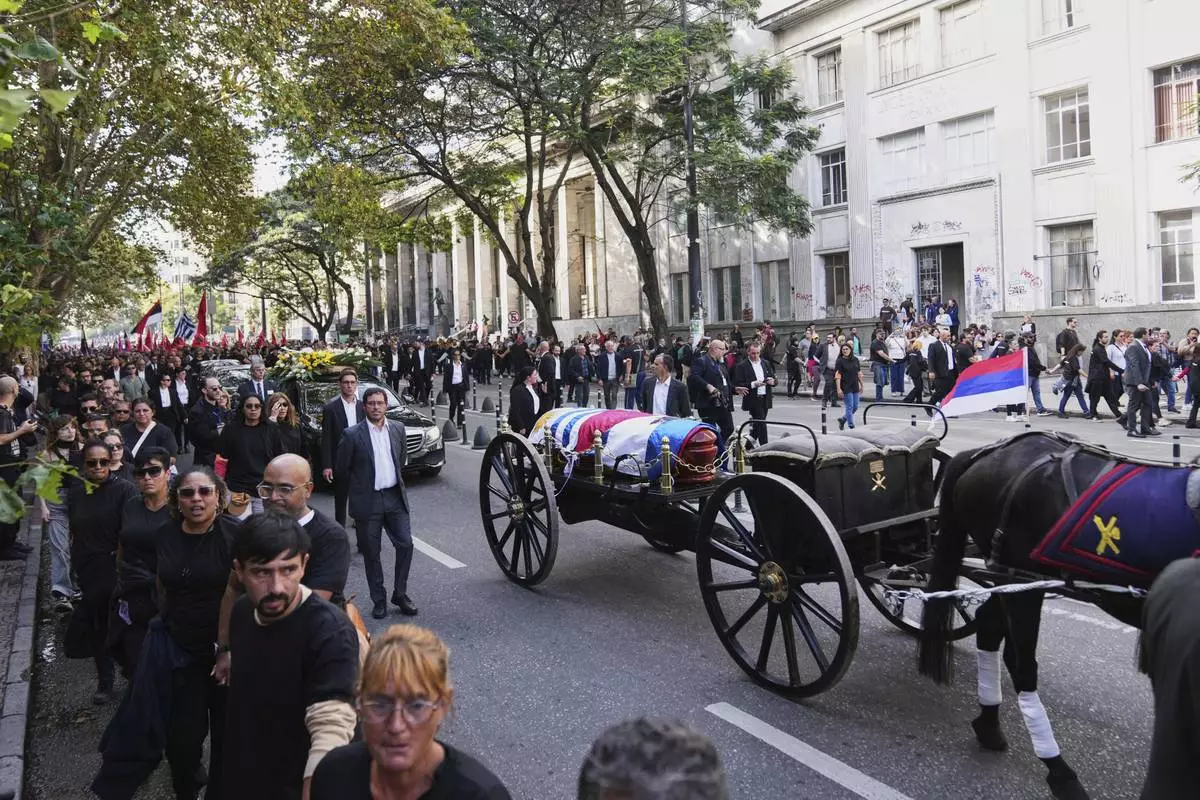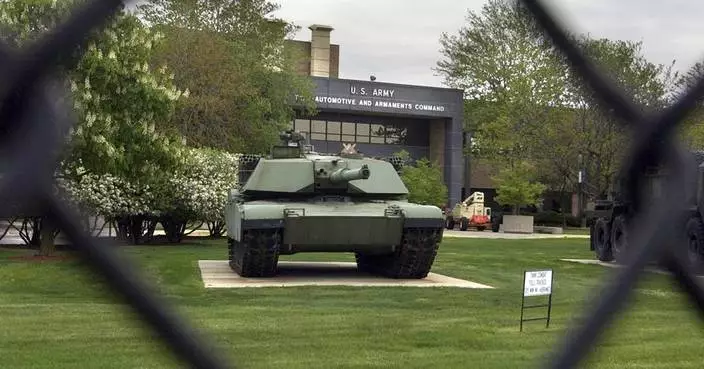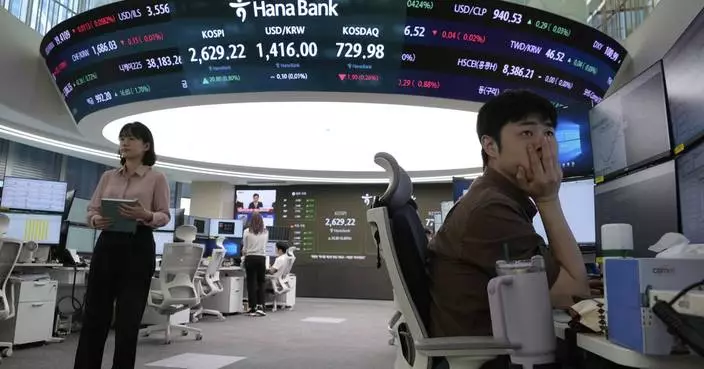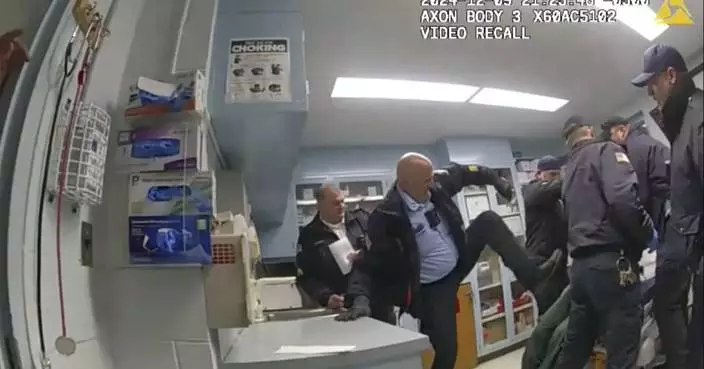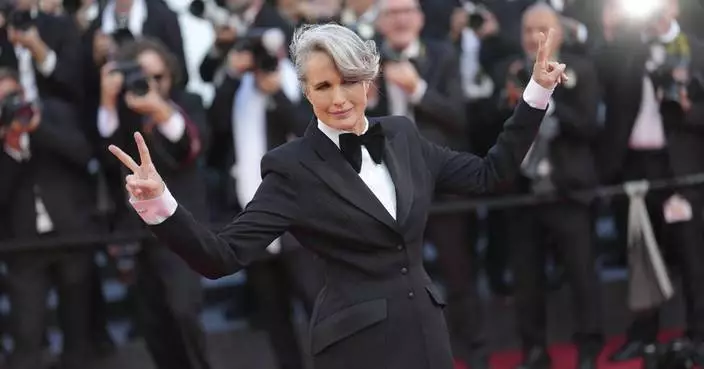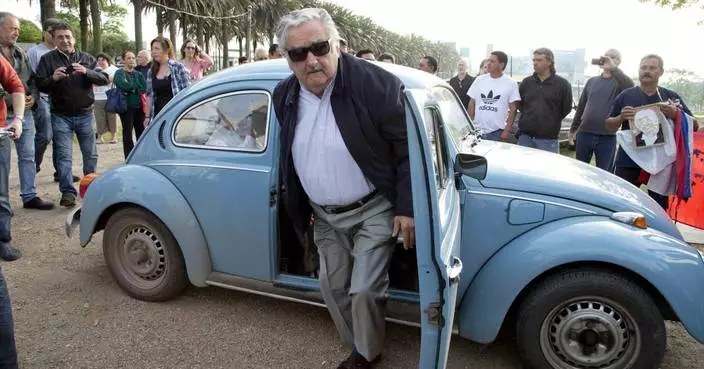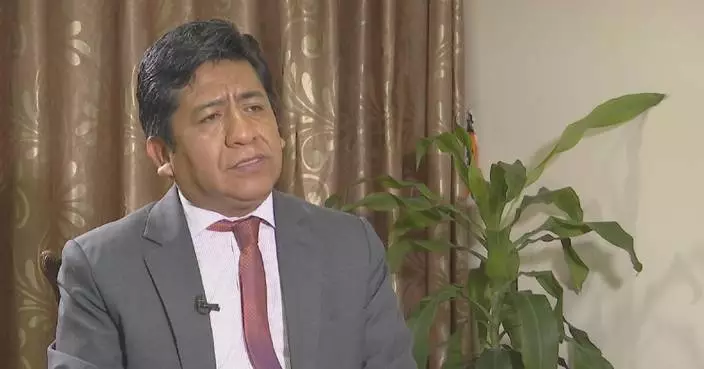PODGORICA, Montenegro (AP) — At least 10 people, including two children, were killed and four others were seriously wounded on Wednesday in a shooting rampage that followed a bar brawl in a western Montenegrin city, officials said. The shooter was on the run.
Police identified the attacker as 45-year-old Aco Martinovic. He killed the owner of the bar in the city of Cetinje, the bar owner's children and his own family members, Interior Minister Danilo Saranovic said at a news conference.
“At this moment, we are focused on arresting him,” Saranovic told reporters.
Police dispatched special troops to search for the attacker in Cetinje, located some 30 kilometers (18 miles) northwest of the capital, Podgorica. All the roads in and out of the city have been blocked as police swarmed the streets.
Saranovic described the suspect as dangerous and appealed on the residents to stay indoors.
“The level of rage and brutality shows that sometimes such people ... are even more dangerous than members of organized criminal gangs,” Saranovic said.
Martinovic was at the bar throughout the day with other guests when the brawl erupted, said Police Commissioner Lazar Scepanovic. He said that Martinovic then went home, brough back a weapon and opened fire at around 5:30 p.m.
“He killed four people” at the bar, before heading out and then continued shooting at three more locations, said Scepanovic. "He tried to take the lives of four more people, and then fled with the vehicle he was using, which we have found.”
He said that the suspect received a suspended sentence in 2005 for violent behavior and has appealed his latest conviction for illegal possession of weapons. Montenegrin media have reported he was known for erratic and violent behavior.
Small Montenegro, which has some 620,000 people, is known for its gun culture and many people traditionally have weapons.
Wednesday’s shooting was the second shooting rampage over the past three years in Cetinje, Montenegro’s historic capital. An attacker also killed 10 people, including two children, in August 2022 before he was shot and killed by a passerby in Cetinje.
President Jakov Milatovic said he was “shocked and stunned” by the tragedy. “Instead of holiday joy ... we have been gripped by sadness over the loss of innocent lives,” Milatovic said on the social media platform X.
Prime Minister Milojko Spajic went to the hospital where the wounded were being treated and announced three days of mourning. He said “all police teams” were out searching for the suspect.
“This is a terrible tragedy that has affected us all,” Spajic said.
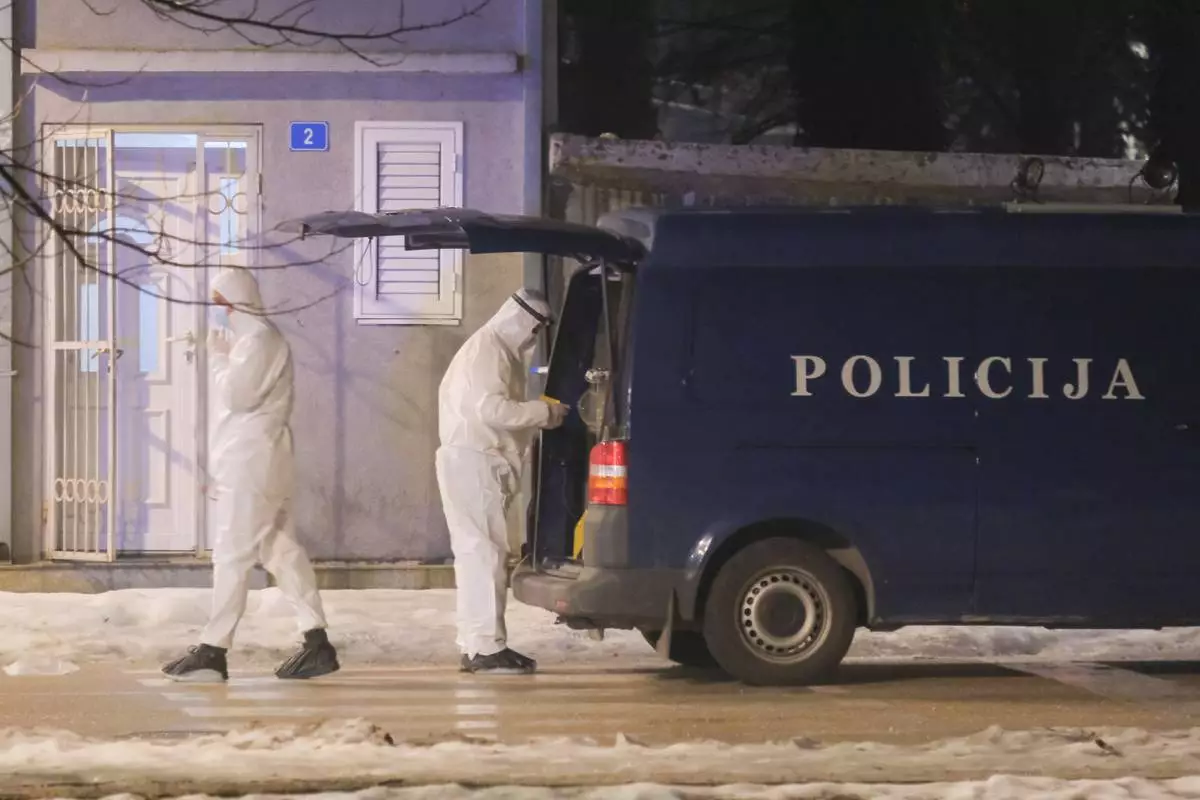
Police investigators work at the site of a shooting in Cetinje, 36 kilometers (22 miles) west of Podogrica, Montenegro, Wednesday, Jan 1, 2025. (AP Photo/Risto Bozovic)

Police investigators work at the site of a shooting in Cetinje, 36 kilometers (22 miles) west of Podogrica, Montenegro, Wednesday, Jan 1, 2025. (AP Photo/Risto Bozovic)



